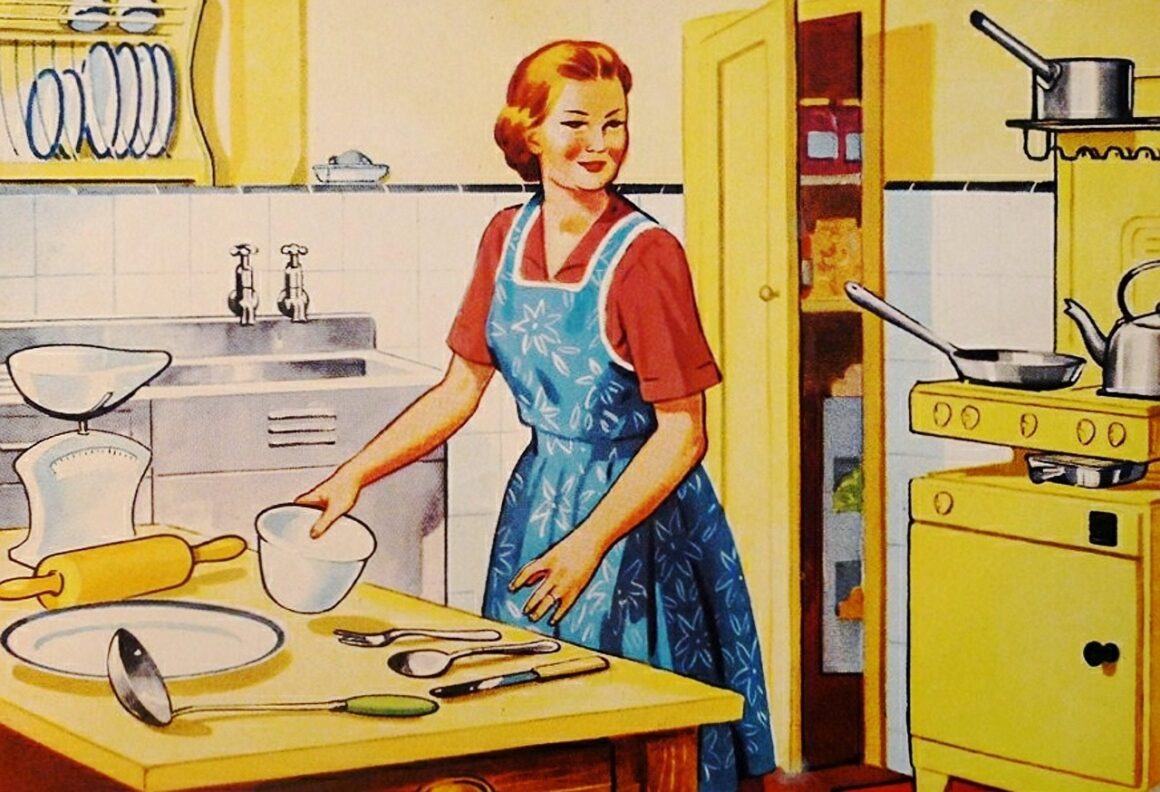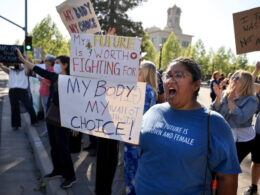By Eleni Vetsika
Two referendums are seeking to amend constitution articles 41 and 41.2. The former provides an extremely narrow and patriarchal definition of what is recognised as a ‘family’, and the latter – equally antiquated – sees women’s role in the home as their primary purpose in society.
Long overdue since the Citizens’ Assembly recommendations, the truth is that the demand for change has been pushed for decades. Even in 1937, when the constitution was first to be introduced, women in Ireland campaigned and protested as they recognised that articles in the draft constitution threatened their rights. This included the Irish Women Workers’ Union and other women’s organisations at the time, running a campaign seeking to delete or reword the aforementioned articles.
Although the fact that the Irish government has finally decided to amend article 41.2 is being heralded by it as progressive, it must be noted that the actual article is so backwards that it would have been next to impossible for any change not to constitute a step forward. With this said, the government has come up with a proposal that makes any change feel half-hearted and hardly worthy of celebration.
Changing words but no action
This most conservative implementation imaginable of a change demanded for decades is typical of this political establishment. Conferring no new rights, this mealy-mouthed proposal will engender no enthusiasm nor progressive activism. This leaves the door open to pernicious far-right actors who are misogynistic, homophobic and anti-choice to try to whip up a No campaign that masquerades as pro-women and children while seeking to increase the support for their ilk that would like to drag us right back to the Archbishop McQuaid era, or worse.
As it stands, article 41.2 claims that women’s lives are within the home and enforces gender stereotypes of unpaid labour and responsibility of care and portrays women solely as ‘mothers’ and carers. It reads: “The State shall, therefore, endeavour to ensure that mothers shall not be obliged by economic necessity to engage in labour to the neglect of their duties in the home”.
The government is proposing to replace the above with: “The State recognises that the provision of care, by members of a family to one another by reason of the bonds that exist among them, gives to Society a support without which the common good cannot be achieved, and shall strive to support such provision”. Although, finally, women are not seen only as the obligatory carers, the weak wording only says that the state should “strive to support” care in the home. It also states that it is ‘Society’ that family carers are supporting. With no mention of the State, it washes its hands of any obligation of state support for carers.
We need change, but we need better
Women in Ireland perform on average 38.2 hours of unpaid care per week. The government is signalling clearly with this wording that nothing will change – the same backward and patriarchal status quo will continue with no concrete commitment to change things in the real world, in which there is a 10% gap in hourly earnings between men and women.
Ireland is the worst country in the EU for childcare costs as a percentage of women’s median earnings. Ireland is 35.7% compared to Germany 1%, Sweden 5.7%, or Austria 4.3%. Ireland spends less than 0.5% of GDP on childcare, compared to Sweden,1.6%, and Iceland, 1.7%. In the Dáil at the time of writing, Mick Barry Socialist Party TD is still pushing for changes to the wording that can confer new rights, signal a real intent to protect carers and increase equality – which would also in turn, engender more enthusiasm for the change, giving less space to an extreme-right No campaign.
Struggle from below
No change at all would have been proposed if it hadn’t been for feminist campaigns and struggles fighting for change for years, mounting pressure on the establishment. Although a Yes vote is necessary to drop overtly sexist clauses in the constitution, recognising where change really comes from and continuing to fight for it is equally important. March 8, the chosen referendum date, International Women’s Day is a day of revolutionary feminist struggle — we will be on the streets that day in solidarity with our siblings worldwide, fighting this Government and patriarchal capitalism.
We will be demanding free, public, quality child care accessible for all; quality healthcare and supports for people with disabilities to provide home care to all that need it, free at the point of use. We need significant pay increases for care, health, and community workers and a massive recruitment campaign to massively expand public health and care jobs. We want a four-day working week with no loss of pay, improved payments and support for foster parents, improved paid parental leave; and two years of paid maternity and paternity leave and more.












